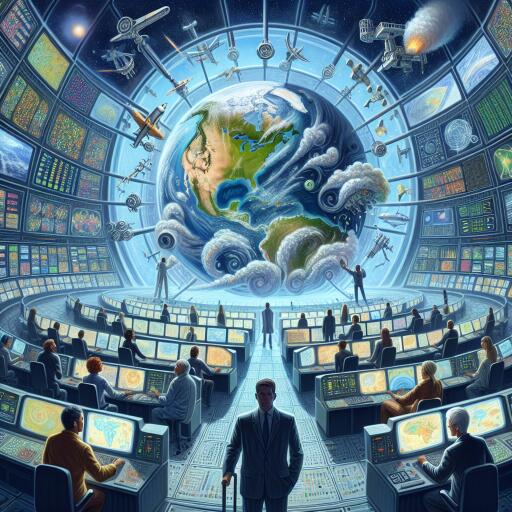
Dyer: Humans now in charge of Earth’s climate
In the realm of geology, debates can stretch over eons, but one particular argument has sharply divided experts for over a decade. The crux of this contention? Determining the precise name for our current geological epoch. After intense discussion and scrutiny, a conclusion has been drawn by a prestigious group of geological experts. Their decision marks a pivotal moment in our recognition of the era we inhabit, dismissing the necessity for a new classification. Instead, it confirms our continued residence within an age-old epoch, despite fervent calls for its rebranding.
The Holocene epoch, a term etched into scientific nomenclature, commenced over 12,000 years ago, in an era defined by the retreat of vast glaciers. This period saw the beginnings of human civilization take root and flourish, influencing nearly every facet of the Earth’s system. However, the rapid acceleration of human impact on the Earth’s atmosphere, oceans, and biosphere led a faction of the scientific community to advocate for a nomenclature revolution. They argued for the christening of a new epoch: the Anthropocene, a term underscoring the profound influence humans wield over Earth’s current state.
The notion of the Anthropocene proposed a stark recognition of our species’ role as a dominant environmental force, capable of altering the planet’s climate, its biochemical cycles, and even the distribution of life itself. This proposed epoch suggested a new phase of geological time, one distinctly marked by human actions.
Yet, after meticulous deliberation, the panel of esteemed geologists reached a consensus that counters the push for this new designation. Their assessment culminates from a deep analysis of Earth’s geological markers, evidence that, while undisputedly showcasing the significant human impact, does not necessitate the classification of a separate epoch. This decision emphasizes continuity with the past, suggesting that, although humanity has indeed become a formidable earth-shaping force, we remain within the bounds of the Holocene.
The conclusion drawn by the geological community is not merely an academic exercise but a profound statement on humanity’s role in the Earth’s ongoing narrative. It reflects an understanding that, while humans have transformed the landscapes, skies, and waters of our planet in unprecedented ways, these changes are inscribed within a longer history of natural evolution and transformation.
This acknowledgment does not diminish the urgency of addressing human-induced climate change and environmental degradation. Instead, it serves as a reminder of the deep interconnectedness between human activities and the natural world. It underscores the responsibility that comes with our newfound power to influence the climate and environment, urging a collective effort to steward the Earth towards a sustainable future.
In essence, the debate over our geological epoch’s nomenclature underscores a broader truth: humans have undeniably become central players in shaping the Earth’s climate and ecosystems. As stewards of this planet, the challenge now lies in navigating our immense influence with wisdom, ensuring that future generations inherit a world that remains vibrant, resilient, and teeming with life. The story of the Holocene, now more than ever, is intertwined with our own, reminding us of our profound connection to, and impact upon, the Earth’s age-old narrative.





Leave a Reply